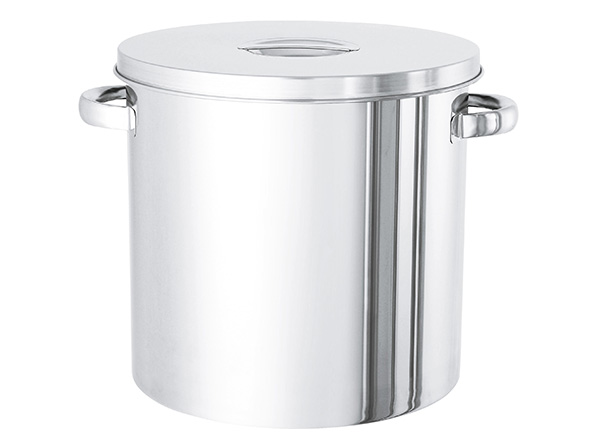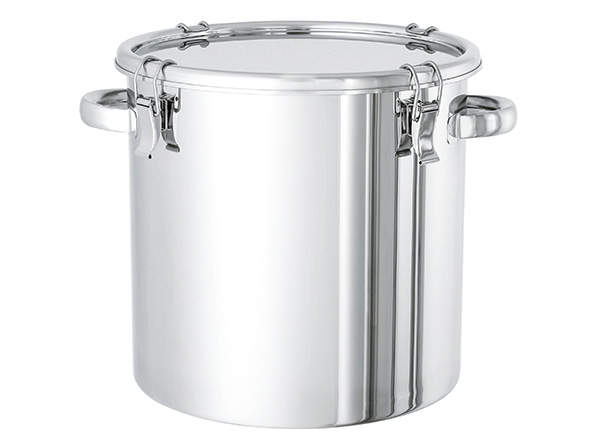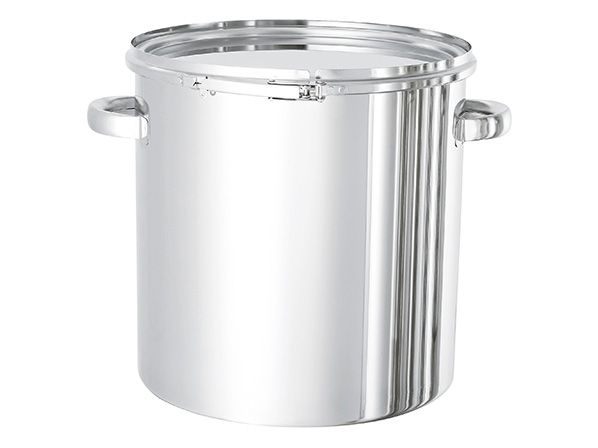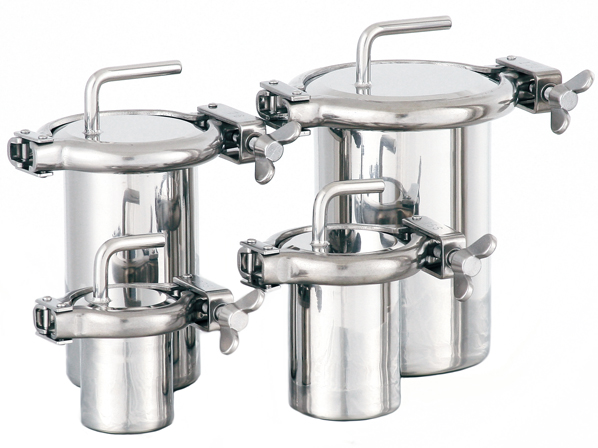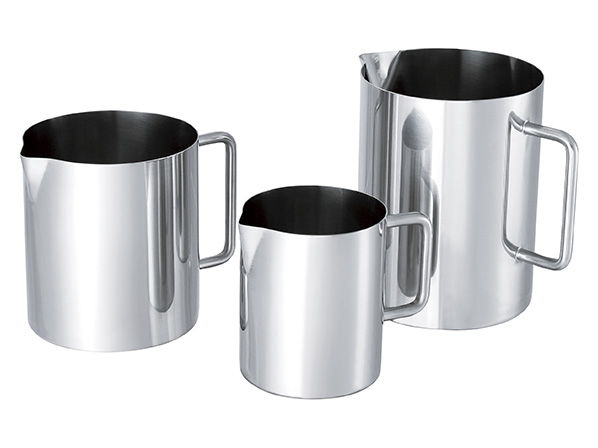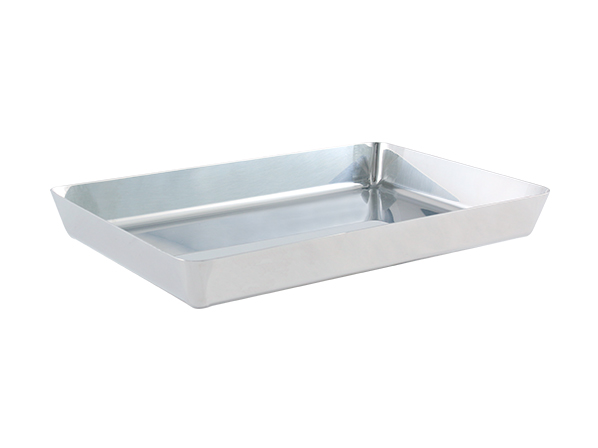
2. Pollution control solutions
3. Safety-first products
4. Products focusing more on functionality and quality than cost
Stainless steel is famous as a rust-resistant metal, but there are various kinds of stainless steel materials, and their performance of corrosion resistance is different. If you’re looking for a stainless steel container that’s safer and more functional than it’s cheaper, this article should help.
What stainless steel material is resistant to rust?
What stainless steel material is resistant to rust?
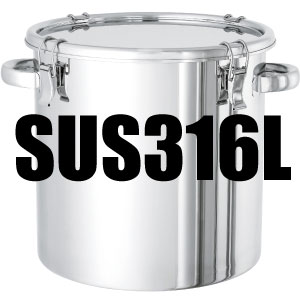
In general, pharmaceutical industry and food industry refer to the following materials as high-grade stainless steel materials:
SUS 316 L
SUS 316 L is a material that is more resistant to corrosion than ordinary stainless steel (High corrosion-resistance).
(The type of stainless steel is described by JIS standard. “SUS” stands for stainless steel, followed by a number representing each steel type.)
Corrosion resistance is one of the important factors in the quality of containers.

When you are storing something, you must need to avoid the risk of foreign matter getting into the content as much as possible, but if you use a metal container, the risk of “rust” is always there.
When rust appears, the following accidents could occur.
・The rusted pieces of the container body are mixed into the stored liquid or powder.
・Cracks or defects is generated from a rusted part.
Avoiding the risk of rust and corrosion is especially important at pharmaceutical and food factories where a high sanitary grade is needed.
At such sites, many stainless steel products, which are recognized as resistant to rust, are widely used.
Stainless steel containers can be stored and preserved appropriately while avoiding corrosion of the container body.
Stainless steel material with different corrosion resistance depending on steel type

SUS 304 widely used worldwide

The stainless steel that we touch most in our life is SUS 304.
The stainless steel material SUS 304 is said to be the most common type of steel and is used in various places such as food equipment, general scientific equipment, building materials, the paper manufacturing industry, the rolling stock industry, and kitchen equipment.
Our company also uses SUS 304 as a standard material.
SUS 316 with improved corrosion resistance

The material with higher corrosion resistance than this SUS 304 is SUS 316.
SUS 304 contains a component called “molybdenum” that is not included.
This molybdenum makes the passive film thicker and improves corrosion resistance.
Improved corrosion resistance of welds! High Grade Material SUS 316 L

SUS 316 is reinforced with SUS 316 L material.
Metal tends to corrode and break easily due to heat during processing.
SUS 316 L is a low carbon type stainless steel with low carbon content in SUS 316. It is a material that is resistant to corrosion (intergranular corrosion) in the welded part that connects parts.
SUS 316 L is generally recognized as a high grade model of stainless steel.
Here is a stainless steel container made of SUS 316 L with excellent corrosion resistance.
Tag Related Posts
- No related posts.

